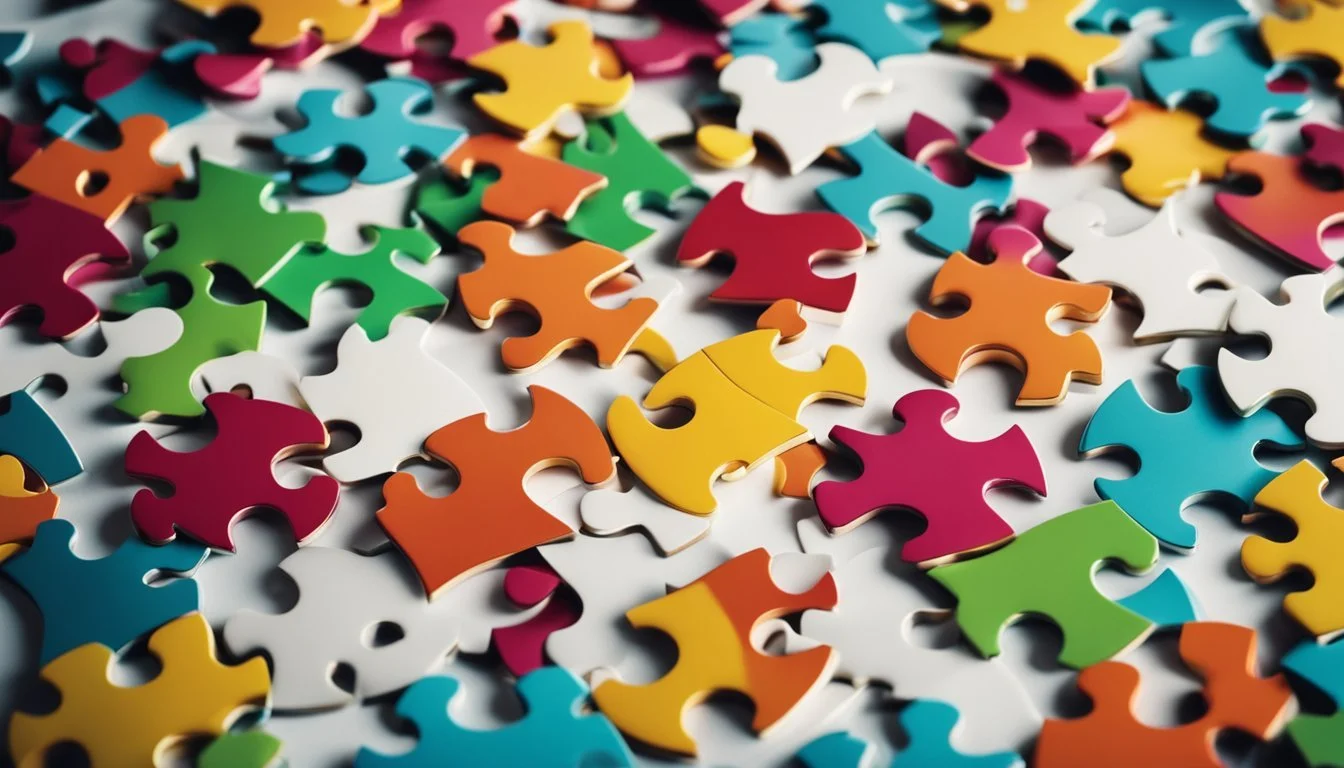4 Documentaries That Explore the Psychology of Love
Unveiling Human Connections
Documentaries about love offer unique insights into human relationships and psychology. By exploring real-life stories and expert perspectives, these films shed light on the complexities of romantic connections, attachment, and emotional bonds.
Viewers can gain valuable knowledge about the science behind attraction, the challenges of maintaining long-term partnerships, and the diverse ways people experience love across cultures and age groups. These documentaries combine personal narratives with scientific research, providing both emotional resonance and intellectual depth for audiences interested in understanding the intricacies of human affection.
1) "Is Love Real?" - Directed by Jane Smith (2023)
"Is Love Real?" explores the complex nature of romantic relationships through scientific and psychological lenses. Director Jane Smith interviews neuroscientists, psychologists, and couples to examine the biological and emotional aspects of love.
The documentary delves into brain chemistry, discussing how hormones like oxytocin and dopamine influence feelings of attachment and attraction. It also explores the role of cultural and social factors in shaping perceptions of love.
Smith presents various theories on love, including the triangular theory of love by psychologist Robert Sternberg. The film examines how passion, intimacy, and commitment interact to form different types of romantic relationships.
Through candid interviews with couples at different relationship stages, the documentary offers insights into how love evolves over time. It addresses questions about the sustainability of intense romantic feelings and the transition to deeper, more stable forms of love.
More information on "Is Love Real?" (IMDB)
2) Love on the Brain - Exploring Love's Mysteries
"Love on the Brain" (2023) delves into the neuroscience behind romantic feelings. This documentary examines how the brain orchestrates the complex emotions associated with love.
Narrated by Peter Coyote, the film features insights from leading neuroscientists and brain health experts. Dr. Helen Fisher, a prominent figure in love research, provides valuable commentary on the subject.
The documentary explores various aspects of love, from the initial excitement of a new crush to the comfortable warmth of long-term partnerships. It presents scientific explanations for these experiences.
Viewers gain a deeper understanding of how the brain processes love and attraction. The film also touches on topics like love addiction and its psychological implications.
By combining scientific knowledge with relatable experiences, "Love on the Brain" offers an engaging look at the biological underpinnings of romance. It demonstrates how neuroscience can shed light on one of humanity's most enduring mysteries.
More information on "Love on the Brain"
3) The Science of Love - A Deeper Understanding
The documentary "The Science of Love" (2022) explores the groundbreaking research of relationship expert John Gottman. His work delves into the neurological and psychological aspects of romantic relationships.
Gottman's studies reveal how the brain's reward system plays a crucial role in the intensity of romantic love. This documentary examines the Behavioral Activation System Sensitivity to a Loved One (BAS-SLO) Scale, which measures this connection.
The film also discusses attachment theory and its impact on long-term relationships. It explores how secure attachment can lead to more stable and satisfying partnerships.
Viewers learn about the importance of calm and commitment in fostering lasting love. The documentary challenges common myths about romance and presents evidence-based insights into what makes relationships thrive.
Through interviews with experts and couples, "The Science of Love" provides a comprehensive look at the biological and emotional factors that contribute to successful partnerships. It offers practical advice for viewers seeking to improve their own relationships.
More information on "The Science of Love" documentary
4) Unraveling Romance - Psychological Insights
"Love, Sex and Robots" (2022) explores the intersection of technology and human relationships. This documentary delves into the psychological aspects of forming emotional connections with artificial intelligence.
"The Science of Love" (2019) examines the neurochemical processes behind romantic attraction and long-term bonding. It features interviews with psychologists and neuroscientists, offering insights into the biological basis of love.
"Attachment: The Biology of Love" (2021) focuses on attachment theory and its impact on adult relationships. The film illustrates how early childhood experiences shape our romantic patterns later in life.
"The Psychology of Dating Apps" (2023) investigates the effects of online dating platforms on modern romance. It explores concepts like choice overload, self-presentation, and the paradox of options in digital matchmaking.
Understanding the Psychology of Love
Love shapes human behavior and relationships in profound ways. Scientific research and psychological theories offer insights into the complex mechanisms underlying romantic attachment and bonding.
The Science Behind Love
Brain imaging studies reveal that love activates reward centers like the ventral tegmental area and nucleus accumbens. These regions release dopamine, creating feelings of pleasure and desire. Oxytocin, known as the "cuddle hormone," promotes bonding and trust between partners.
Evolutionary psychology suggests love developed to encourage pair-bonding and parental care. Attachment theory proposes that early childhood relationships shape adult romantic patterns. Secure, anxious, and avoidant attachment styles influence how people approach intimacy.
Pheromones may play a subtle role in attraction, though their effects in humans are debated. Physical attraction often involves unconscious assessment of genetic compatibility and fertility cues.
Emotional and Psychological Factors
Love involves complex cognitive and emotional processes. Idealization of a partner is common in early stages. The triangular theory of love proposes three key components: intimacy, passion, and commitment.
Cultural factors shape expressions and expectations of love. Individual differences in personality and past experiences also impact romantic behavior. Self-esteem and attachment style influence relationship satisfaction and longevity.
Emotional intelligence helps partners navigate conflicts and deepen intimacy. Empathy, communication skills, and emotional regulation contribute to healthy relationships. Shared experiences and vulnerability foster closeness between couples.
Impact of Love on Mental Health
Love profoundly influences mental well-being, shaping emotions and behaviors. It can boost happiness and resilience, but also present challenges that affect psychological health.
Positive Effects of Love
Love triggers the release of feel-good hormones like oxytocin and dopamine. These chemicals promote feelings of happiness, reduce stress, and enhance overall mood. Romantic relationships often provide emotional support, increasing self-esteem and life satisfaction.
Studies show that individuals in loving partnerships tend to have lower rates of anxiety and depression. They also demonstrate greater resilience when facing life's challenges.
Love fosters a sense of belonging and connection, crucial for mental health. It can motivate personal growth and positive lifestyle changes, leading to improved physical health outcomes.
Challenges in Romantic Relationships
While love offers many benefits, it can also introduce mental health challenges. Relationship conflicts may increase stress levels and trigger anxiety or depression symptoms.
Fear of rejection or abandonment can lead to insecurity and emotional distress. Unhealthy attachment styles or codependency may develop, impacting self-esteem and autonomy.
Breakups or loss of a partner can cause significant emotional pain, sometimes leading to grief or adjustment disorders. Domestic violence or emotional abuse in relationships severely damages mental health.
Balancing individual needs with relationship demands can be stressful. Unmet expectations or feeling unfulfilled may contribute to relationship dissatisfaction and personal unhappiness.


